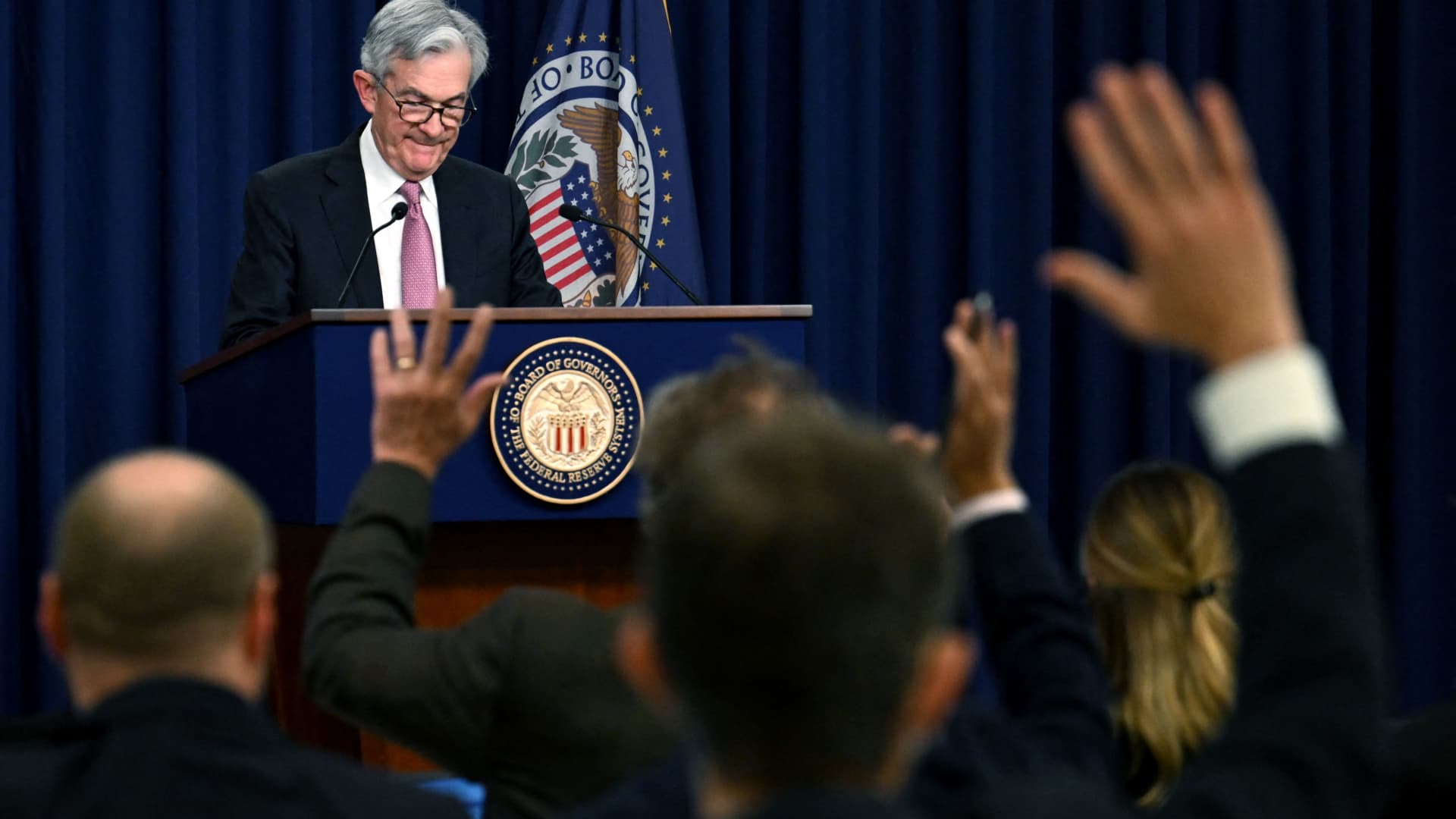
With turmoil in the markets, high inflation and impending interest rate hikes that will make borrowing money more expensive, many Americans are wondering if the economy is heading toward a recession.
Goldman Sachs chairman Lloyd Blankfein said last weekend that "it's certainly a very, very high risk factor," and consumers should be "prepared for it." However, he hedged his comments by saying the Federal Reserve "has very powerful tools" and a recession is "not baked in the cake."
Although it is impossible to know for sure, the odds of a U.S. recession in the next year have been steadily rising, according to a recent Bloomberg survey of 37 economists. They have the probability pegged at 30%, which is double the odds from three months ago.
To put that number into context, the threat of a recession is typically about 15% in a given year, due to unexpected events and numerous variables.
The bottom line: "The likelihood of recession this year is pretty low," says Gus Faucher, a chief economist at financial services company PNC Financial Services Group. However, "it gets dicier in 2023 and 2024."
What determines whether the economy enters a recession
A recession is a significant decline in economic activity that is spread across the economy and lasts more than a few months, according to The National Bureau of Economic Research, which officially declares recessions.
A key indicator of a possible recession is the real gross domestic product (GDP), an inflation-adjusted value of the goods and services produced in the United States. For the first time since early in the pandemic, it decreased at an annual rate of 1.4% in the first quarter of 2022. Since many economists agree that 2% is a healthy annual rate of growth for GDP, a negative quarter to start the year suggests the economy might be shrinking.
Another factor is rising inflation, which has recently shown signs of slowing down. But it's still well above the Fed's 2% target benchmark, with a year-over-year rate of 8.3% in April, according to the most recent Consumer Price Index numbers.
With a high rate of inflation, higher prices outpace wage growth, making things like gas and rent more expensive for consumers. For that reason, the Fed imposes interest rate hikes, as they did in March and May, with five more expected to follow this year. These hikes discourage spending by making the cost of borrowing money more expensive for businesses and consumers.
While many economists still expect the GDP to grow in 2022, the rate by which inflation is decreasing is less clear.
Signs of economic strength
However, there are positive economic indicators to consider as well. Job numbers continue to look good, as the U.S. economy in April had its 12th straight month of job gains of 400,000 or more. And employment levels and consumer spending remain strong, for now, despite interest hikes and inflation.
"Ultimately, inflation in terms of rising prices needs to work its way into actual spending behavior," says Victor Canalog, head of the commercial real estate economics division within Moody's.
He points out that consumer expenditures in the U.S. rose by 2.7% last quarter: "People are still spending more, but at what point will they start spending less?"
Despite these positives, risks remain. The Federal Reserve is walking a fine line with its monetary policy, says Faucher, as doing either too much or too little to control inflation could further hurt the economy.
"Rising interest rates are designed to cool off growth, hopefully without pushing the economy into recession," says Faucher. But he says that if the central bank "raises their rates too much, that can push the economy into recession."
"That's why I'm more concerned about 2023, or 2024, because we'll have felt the cumulative impact of all of those interest rate increases that we're going to be seeing over the next year and a half."
Sign up now: Get smarter about your money and career with our weekly newsletter
Don't miss: Interest-only mortgages may offer cheaper monthly payments at first, but there are major downsides
The US economy is 'nowhere near a recession this year,' says an economist—but 2023 is a different story - CNBC
Read More
No comments:
Post a Comment